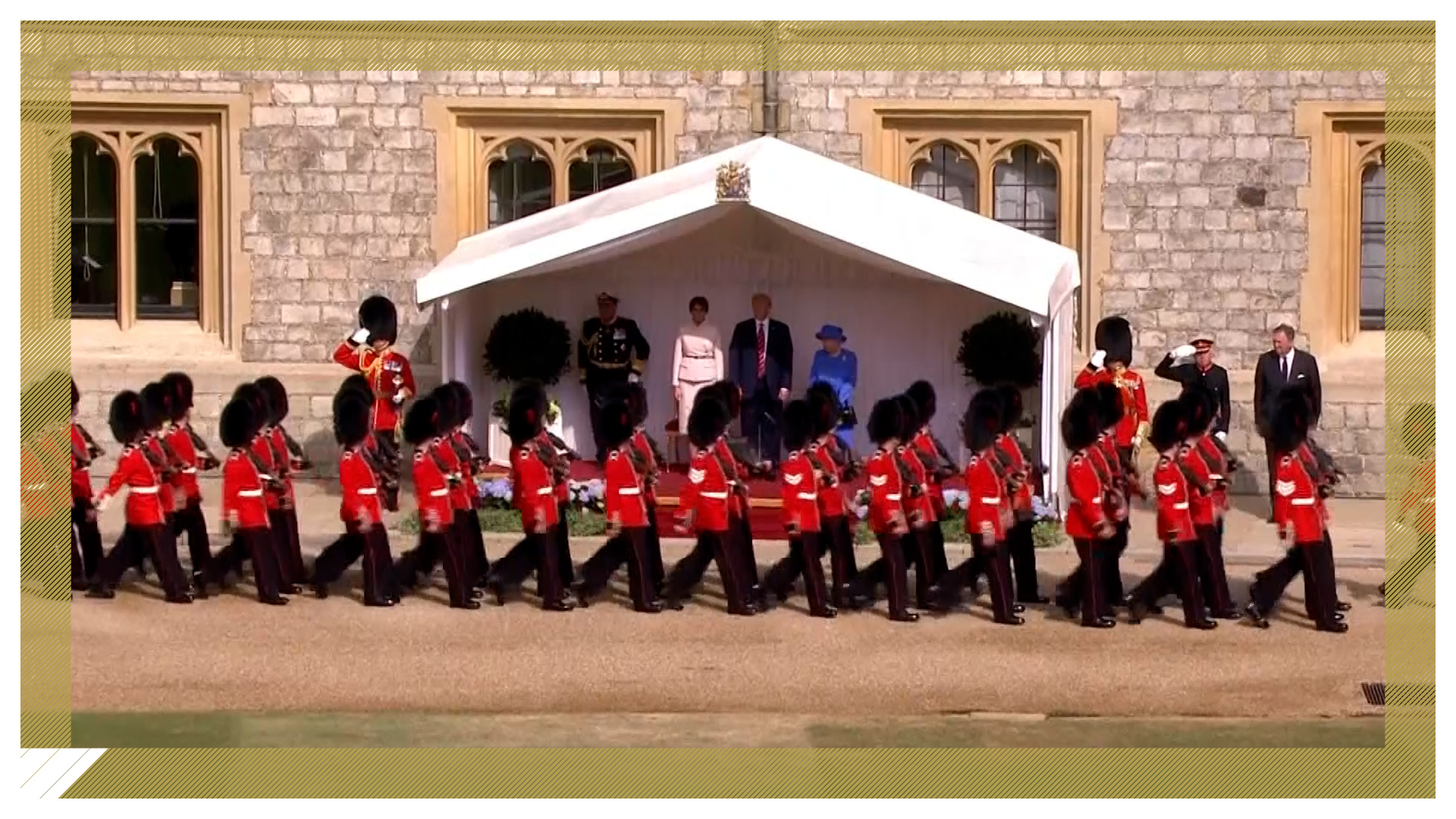01:57

The "Special Relationship" is a term often used to describe ties between the U.S. and the UK and it signals one of the world's most important diplomatic relationships.
The current incumbents in the White House and Downing Street like to exalt their personal friendship, but ties between the countries have been built up over centuries and solidified in the postwar era. But just how might it change depending on who wins the U.S. election?
"President Trump is famously an Anglophile," says David Collins, professor of international economic law at City, University of London. "He talks often about his Scottish heritage, he enjoyed meeting the Queen, so I think the cultural ties have been pretty strong under Trump and they'll only get stronger in a second presidency."

CLICK: CAN A CENTURIES-OLD SYSTEM SAVE AUSTRIA'S ALPINE FARMERS?
The current U.S. president and his Democrat rival, Joe Biden, are offering very different visions for the future of the world's largest superpower. And that applies in foreign policy too.
As an Irish Catholic American, Biden is proud of his ancestral heritage. At a recent debate with the president, he said wealthy people like Trump "look down their nose on... Irish Catholics like me."
And the issue could raise its head in any future Biden presidency. The former vice-president has already warned the UK that any Brexit deal with the European Union must respect the Good Friday Agreement. The treaty was signed in 1998 along with U.S. help to end the conflict in Northern Ireland.

Joe Biden, then the U.S. vice president, makes a speech at Dublin Castle in Ireland in June 2016. /Maxwells Dublin/Irish Government/AP
Joe Biden, then the U.S. vice president, makes a speech at Dublin Castle in Ireland in June 2016. /Maxwells Dublin/Irish Government/AP
If complications arise, Biden claimed he would hold off on securing a free-trade agreement with London, something that Trump and UK leader Boris Johnson have made a top priority.
When Biden was vice-president, the transatlantic relationship was cordial. The leaders of the two countries, Barack Obama and David Cameron, regularly adopted leadership roles in multilateral organizations such as the G8 (later the G7).
But two key things have happened since then. The U.S. adoption of an 'America First' strategy under Donald Trump has switched its focus to domestic priorities, while Britain's 2016 vote to leave the EU has similarly shifted its attention to an ongoing divorce that has so far has proved messy and costly.
Tensions in the Special Relationship
U.S.-UK ties have strengthened during Trump's four years in office, although there have been instances when the two sides have disagreed.
The UK allowed Chinese telecoms giant Huawei to play a limited role in building its 5G networks in January before a U-turn saw it ban the firm in July. Donald Trump claimed it was his pressure that changed Downing Street's decision.
In the Middle East, the countries have been at odds over the Iran nuclear deal. The accord, signed in 2015, was a key milestone of Obama's presidency and involved Biden's diplomacy.
President Trump's withdrawal from the deal was met by disapproval from other signatories including the UK, Germany and France, who still hope to salvage it in some form.

Anglophile Donald Trump enjoyed meeting the UK's Queen Elizabeth II. /Star Max via AP
Anglophile Donald Trump enjoyed meeting the UK's Queen Elizabeth II. /Star Max via AP
Another area of contention could be around U.S. tech giants like Google, Amazon and Facebook. "The UK has gone ahead with a digital services tax, and President Trump has indicated he doesn't like that," says Collins. "Clearly, that's something the Trump administration doesn't want."
Whoever wins the vote on November 3, analysts generally agree that the bilateral relationship will be maintained.
"If you look at global finance, London and New York still lead the way. When London sleeps, New York wakes up and vice versa,” said Michael Cox, Director of LSE Ideas.
"The ties are about the security relationship, the intelligence, the nuclear relationship, even the economic relationship and that diplomatic relationship – the structure, therefore, is just as important as who is in the White House and who is not."